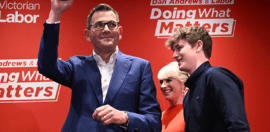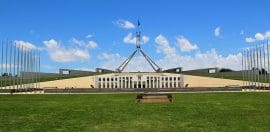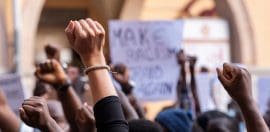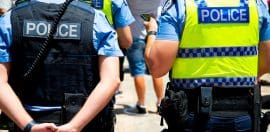Unleashing your inner radical: lessons learned from a time of upheaval

Penny Stephens (@bypennystephens on Twitter)
25 May 2022 at 4:23 pm
“Radicals are the people that are ahead of their time”
What makes a radical?
It’s a question that Dr Meredith Burgmann AM has been asking herself after publishing her latest book, Radicals: Remembering the Sixties.
Burgmann herself could be considered a radical, having spent much of that decade protesting inequality and Apartheid. But more importantly, she’s been considering the vital place of radicals in shaking up the world and creating change.
Having been at the forefront of it all back in the ’60s, she’s now reflecting on the role of the changemakers who were on the frontlines with her: David Marr, Gary Foley, Geoffrey Robertson and others who have gone on to become household names.
Speaking at the Communities in Control conference in Melbourne on Tuesday, Burgmann said each of the lives in the book had made the world a better place.
“Radicals are the people that are ahead of their time. They think things and do things that need to happen in the world. The great men and women of history were often considered radicals and even ratbags,” she said.
Her book covers some of the most important protests and demonstrations in history, beginning with the 1965 Charlie Perkins-led Freedom Ride, and moving through the 1966 demonstrations against Lyndon B. Johnson, the 1967 protests against the hanging of Ronald Ryan (the last person to be executed in Australia), the anti-Vietnam and anti-conscription campaigns, the controversial 1971 Springboks tour, and the roots of the Aboriginal Tent Embassy, second-wave feminism and the gay liberation movement. It concludes with the dismissal of the Whitlam government.
The book considers the epiphanies, or “aha moments”, that drove young Australians to radically oppose inequality. It’s a story of friendship through activism, and a trip down memory lane.
At the conference, Burgmann recalled her own radicalisation. She and her co-author, Nadia Wheatley, were both from “middle class and politically conservative families, and both [of us] had been educated at single sex, private church schools”.
“My aha moment was purely and simply the war in Vietnam,” she said.
“Here was my government sending young Australians overseas to kill others in my name. The more I learned about Vietnam, the more horrified I became.
“I can remember waking up one morning thinking, ‘Oh gosh, I’m a socialist’,” she laughed.
By the early 70s, she had been arrested 17 times for her participation in protests.
Burgmann said her generation knew they had to “escape” and speak out against wrongdoing.
“For our generation, radicalism meant openness and freedom,” she said.
There’s still room for radicals
But while much of the book deals with the past, the lessons that can be learned are still very relevant to today’s social sector.
Speaking to Pro Bono News after her presentation, Burgmann said radicals today still need to be supported in their work.
The “war on charities” has made it difficult for some groups to advocate for their purpose, but she said that radicals could play different, less publicly demonstrative roles – as Geoff Robertson had for her and her friends back in the ’60s, when he had helped them by appearing for them in court.
“There are different roles you can play in trying to change the world. And it’s not necessarily wrong to see your role as being a bit cautious, but still always supporting the right position,” Burgmann said.
In a similar vein, she said she was “thrilled” by the number of young people standing up for their beliefs, especially around climate change – but said while she wouldn’t be joining them on a picket line anymore, she would support them in other ways.
“What I say now to young people is, ‘Look, I so support you, but whether I can stand out in the rain at some demo anymore, I just don’t know. I think I’d hurt too much! But I can write and I can send money and things like that,” she said.
Radicalism can also help to heal the divisions in society, Burgmann said, as people connect over shared beliefs and values.
“You just find friends. I realise now that I made friends during the anti-Vietnam War and the anti-Apartheid campaigns that are still my friends,” she explained.
“You’ve got to keep remembering to have friends along the way rather than getting so obsessed by the organisation. I always tell young activists, ‘Don’t forget to have fun, because that’s the only way you’ll be able to pace yourself and keep going’.”
And she had some final words of encouragement for those working in the social sector.
“The world’s a better place because of those people we wrote [the book] about. And the world will be a better place because of you, wonderful community workers,” she said.







